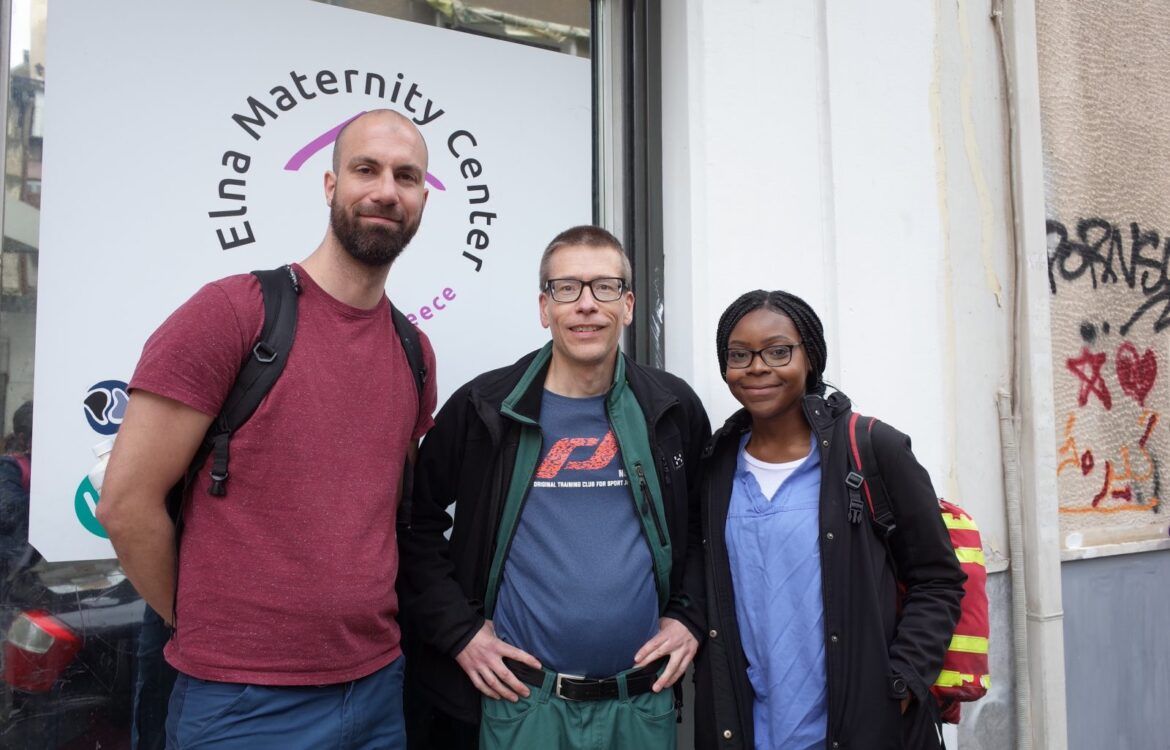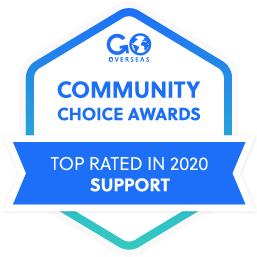
Spring ’20 Volunteer Interviews: Working with Prolepsis and Medical Volunteers International
Even though the spring ’20 semester ended early due to COVID-19, students still had productive and meaningful volunteer experiences during their time in Athens. CYA has conducted interviews with volunteers from the spring ’20 class, and we will be publishing some of them on the CYA Blog. This interview features Clair-Djinie Bazar, from Siena College, who worked at Prolepsis and Medical Volunteers International (MVI) during her time in Greece.
Do you think you gave back to the community and how?
Overall, I think I gave back to the community when I volunteered for the Medical International Volunteers (MVI) and Prolepsis. Through MVI, I had the opportunity to treat patients that do not easily have access to healthcare alongside doctors. The clinic where I volunteered, called Elna, is a maternity clinic where the patients were immigrant and refugee women and their children. These patients would come if they wanted a consultation with a doctor, needed medication, etc. I was able to work alongside the doctors and provide my input on what I thought of the situation. Being that all of the patients were immigrants, most of them did not speak Greek or English. Consequently, I was able to translate for those that spoke French because I am semi-fluent in French.
Through Prolepsis, I was able to work on a project called MigHealthcare. This project provides mapping activity of healthcare and psycho-social support services for immigrants and refugees in the EU. It mainly focuses on community-based healthcare services, non governmental organizations, public services and local initiatives. My work consisted of researching online for companies that provided these services to immigrants in different countries such as Bulgaria, Greece, and Austria. MigHealthcare aims to alleviate healthcare inequalities that immigrants face when coming to a new country by providing them a way to access the different services that are offered in the country they are in. This project is very important because it provides a means of access to refugees and makes their life less hectic because they know they have a support system that wants to help them. There has been an increase in the number of refugees in the EU and it is essential that they have a way to get help when they need it. It really made me aware and able to compare and contrast how the countries in the EU deal with immigrants and what is offered to them.
Whether it was distracting the children and putting a smile on their face while the doctor checked them or helping write a report, volunteering allowed me to give back.

Clair-Djinie Bazar and two other volunteers at the Elna Maternity Center.
How did volunteering enrich your study abroad experience?
Volunteering enriched my study abroad experience because it allowed me to engage more with the community and get to know more about Athens and Greece on a personal level. I explored parts of Athens that I don’t think I would have looked at if I didn’t volunteer. Volunteering helped me become more knowledgeable and aware of how life is for the refugees and immigrants in Greece. I was able develop my perspective by having the chance to hear from refugees themselves on what they are going through while treating them. Some of the stories really shocked me because I would have never imagined the state that immigrants are in right now but am grateful for the understanding that I acquired.
What was your favorite moment from volunteering? And the most meaningful?
My favorite moment from volunteering would have to be being able to recognize the patients that were seen the previous weeks and having them recognize me also. The most meaningful would have to be seeing the grateful faces of the patients which really helped me ease into the different environment. You always want a patient to feel comfortable and I was able to help them with that. Additionally, the people I volunteered with made my experience so much better and I looked forward to the next time after I was done!
How did you decide to volunteer? How did CYA help you find the best fit for you?
When I decided I wanted to study abroad, I knew I wanted to volunteer to further my knowledge for my future career. I am a Health Science major and want to go into PA School after I graduate so I wanted to make sure there were opportunities with medical care that I can partake in. Through CYA’s list of volunteer opportunities, MVI and Prolepsis caught my eye and Nadia Meliniotis was a great asset in helping me get in contact with both places.
How do you feel now that you’ve had to return home? Will you miss volunteering?
Returning home much earlier that I expected, I did not get to do all that I hoped to do and I miss volunteering so much but I hope to return to Greece one day and volunteer again with MVI.
What advice would you give to future CYA students about volunteering?
I would tell future CYA students to not hesitate and just do it because you won’t regret it. There is no doubt you’ll find a place that fits you, being that there are so many opportunities that CYA provides.
How did you balance volunteering with your work for classes?
My semester consisted of only four classes, so I was lucky enough to be able to volunteer at two different NGOs. On Tuesdays and Thursdays I only have one class in the morning so I was able to volunteer at Prolepsis from 1:30-5:30pm on Tuesdays and then MVI from 2:30-6:30pm on Thursdays. I was committed to volunteering so I made sure to get my homework done beforehand for my classes.
Why do you think volunteering is important while studying abroad?
Volunteering is important while studying abroad because it allows you to be a part of the community, as well as get to know the place that you are spending 4-5 months in. If you find an area that you are passionate about, volunteering will give you a sense of purpose. Additionally, whether you realize it or not, volunteering helps build new skills. For me, I was able to get out of my comfort zone when it comes to living in a new place, and do what I love, which is help others. Furthermore, I was able to improve my verbal and nonverbal skills when it comes to treating and conversing with patients.





